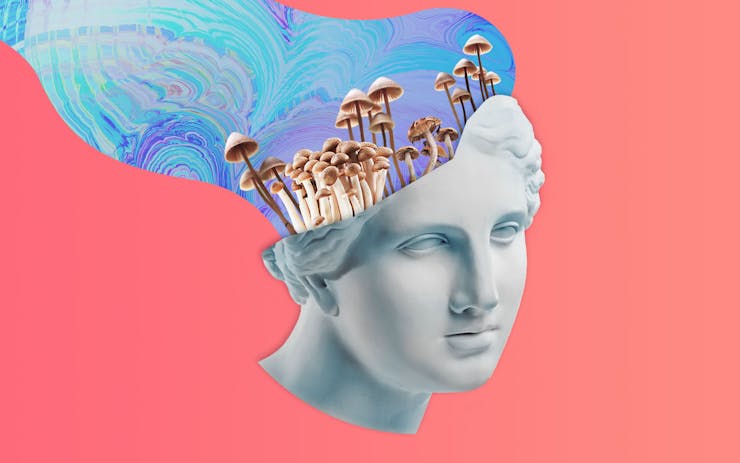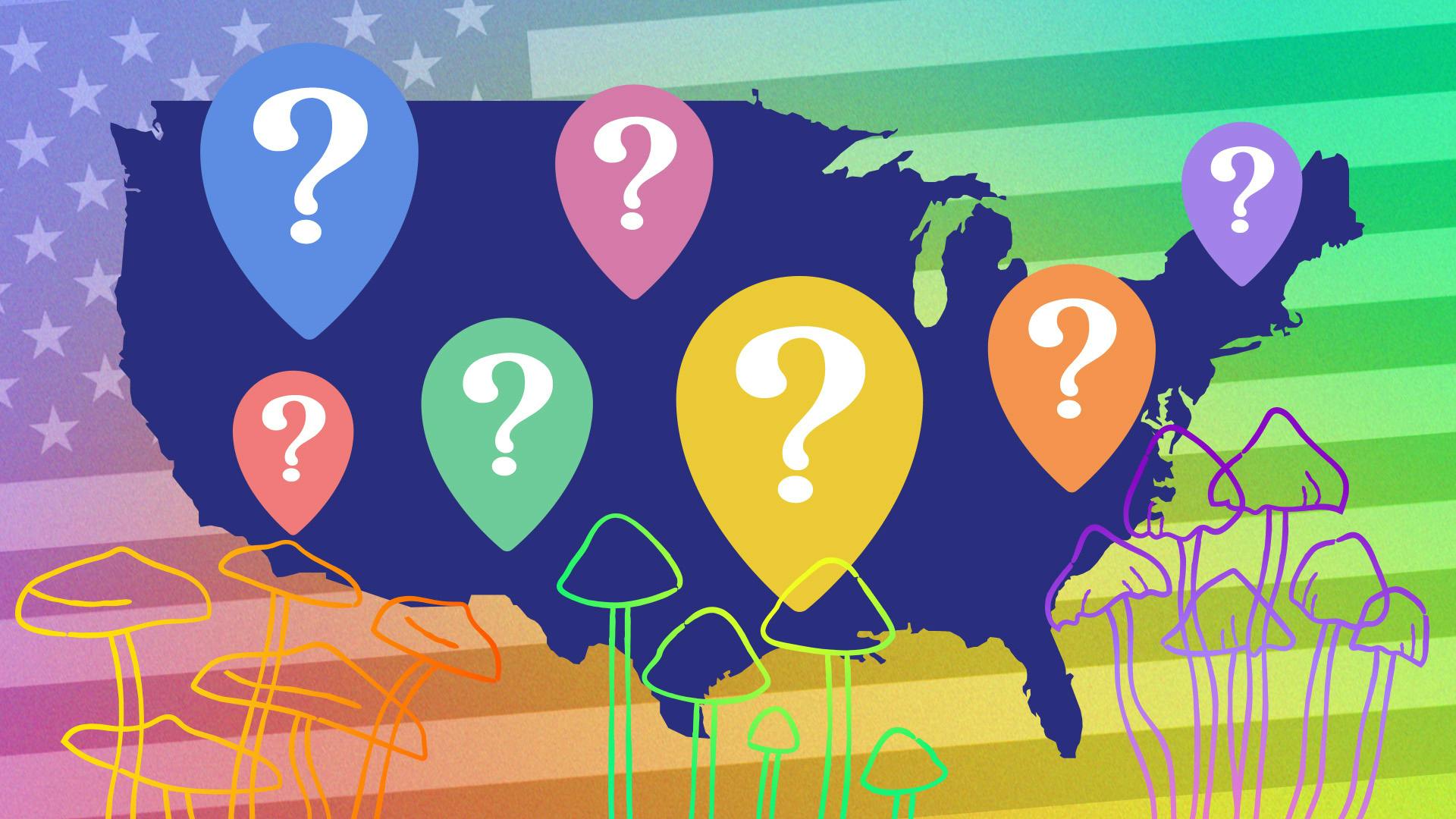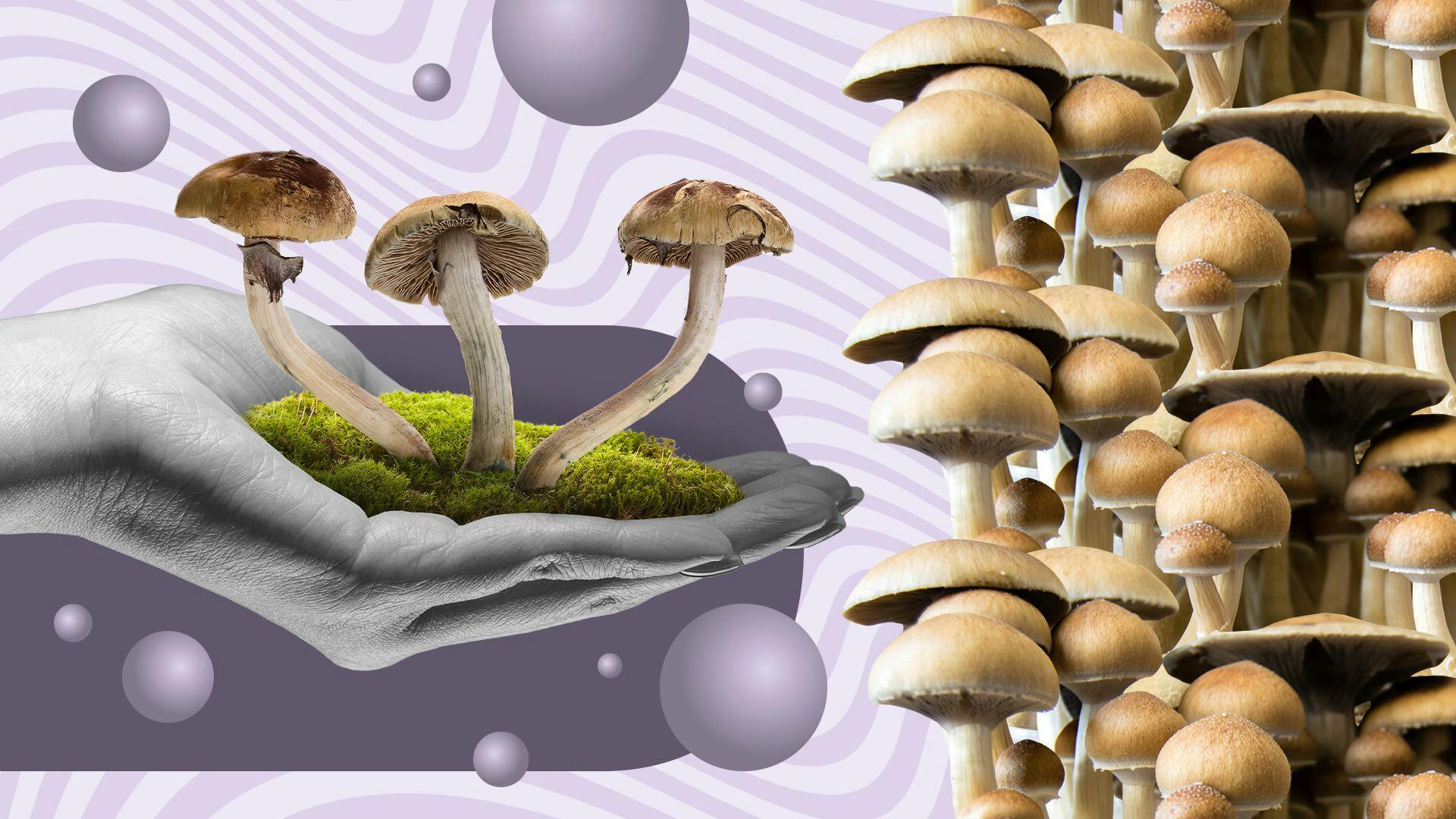New research shows that LSD and psilocybin might help your brain shift gears between dynamic activity states
Contrary to myths that psychoactive drugs fry your brain, new research published yesterday (October 3) in Nature Communications has found that some hallucinogens may enable more dynamic mental function.
Scientists from Weill Cornell Medicine reviewed recordings from fMRI scans that suggest these substances essentially flatten the landscape of your brain, making it easier to jump between tasks.
Adults in the study group required less mental energy to shift between different modes of activity after using LSD or psilocybin (the psychoactive compound in magic mushrooms).
“LSD and psilocybin activate serotonin receptors on brain cells in a way that reduces the energy needed for the brain to switch between different activity states.”
Study: “Receptor-informed network control theory links LSD and psilocybin to a flattening of the brain’s control energy landscape”
The research was led by senior author Dr. Amy Kuceyeski and doctoral student Parker Singleton, with the help of researchers at Weill Cornell Medicine and Imperial College of London. The scientists are interested in finding therapeutic use for the substances, and may have established a new way to evaluate the effects of psychoactive drugs on a broad scale.

In the study, researchers tracked the effects of LSD and psilocybin on brain activity using functional magnetic resonance imaging (fMRI) recordings of the brain activity of volunteers. Each volunteer underwent two scanning sessions. One session included a dose of LSD or psilocybin, the other a placebo.
“Serotonin 2a receptors have a spatial distribution in the brain that appears to be optimized for lowering these state transition energies,” Singleton told the Weill Cornell School of Medicine’s newsroom.
Data from the recordings revealed that participants could transition between activity states more easily, allowing “for more facile state transitions and more temporally diverse brain activity.” The authors added, “more broadly, we demonstrate that receptor-informed network control theory can model the impact of neuropharmacological manipulation on brain activity dynamics.”
The research team now plans to use the same approach to study longer-term effects of LSD and psilocybin on brain dynamics, including those that could be used in clinical settings. They also believe their approach could well improve our subjective understanding of individual psychedelic trips.
“If we want someday to use psychedelic drugs clinically,” Singleton said, “we should understand not only how they’re impacting brain cells, but also how they’re impacting the wider dynamics of brain activity.”

Their new approach, which they dubbed network control theory, uses a clustering algorithm to categorize a data set that represents a network’s activities as distinct patterns, or states. In the study, the meta-view of the network’s state-to-state transitions illustrated that psychedelics lowered, or ‘flattened,’ the minimum energy barriers required to transition between states, “allowing the brain to transition from one state to another much more readily,” according to the results.







